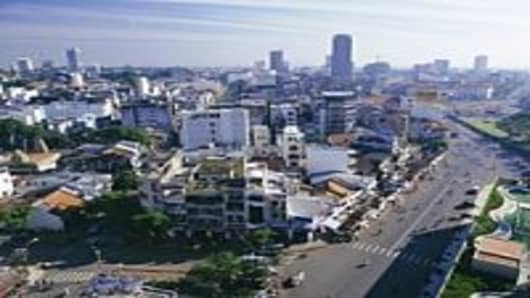While most investors have been pouring money into Indonesia, making it the top performing market in Southeast Asia over the past year, one strategist is cutting back on his exposure to the country and stepping up his investments in Vietnam instead.
"'l call it the triple crown of investing because you're getting value, you're getting growth and you're getting coupon dividends," David Roes, Chief Executive Officer at Asean Investment Management said of Vietnam's stock market on Thursday.
Roes is increasing his portfolio's exposure to Vietnam to 30 percent from 10 percent currently. On the other hand, he's reducing the portfolio's exposure to Indonesian equities to just 10 percent because he believes they are now overvalued after gains of 24 percent over the past 12 months for the Jakarta Composite.
"We view it now to be a bit of an overcrowded trade, fully valued," he said. "The risk is clearly to the downside if expectations in terms of growth and company earnings are not met."
Vietnam on the other hand, Roes believes, offers a fairly attractive investment proposition, with returns on equities as high as 30 to 40 percent.
"(This) indicates to me clearly, that equity, or the book values, have not been marked up," Roes, explained. "Where often times you find in other markets, returns on equity are significantly lower, even though you may have growth and you may have decent earnings."
Inflation though remains a big concern in Vietnam, with July consumer prices accelerating 22 percent over the previous year, the highest rate in Asia.
Yet, Roes remains bullish and believes the country will bring the situation under control.
"We would look forward, say, (to the) first half of 2012, for an inflation figure to be below 10, trending towards 9. That's enough to see a doubling of the index, if you see that sort of move in inflation."
While Vietnam's benchmark index is down 60 percent from its 2007 peak, Roes believes now is the time to start buying, albeit slowly, into small and mid caps.
As a frontier market, Vietnam has lower liquidity than markets such as Indonesia. According to HSBC, daily turnover for the Ho Chi Min Index was just $28 million in 2010. But, Roes believes that exiting the market won't be a problem.
"On the exit...when everyone is crazy about Vietnam, and trust me they will be, then its an easy sell," he said. "Liquidity is there, you exit. It's easy to get out..as long as you get out in time."


